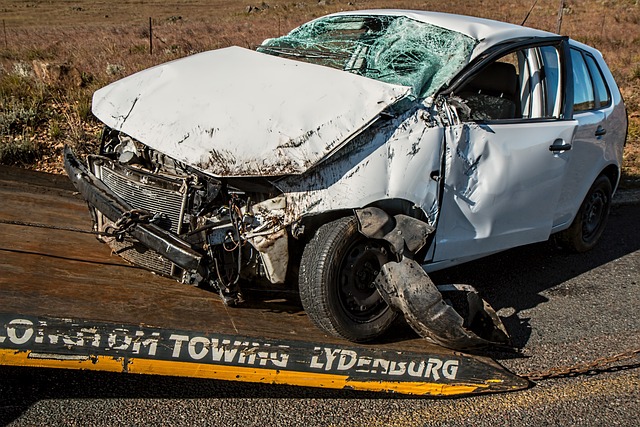
No-Fault Law in New York

Accidents happen every day, and they often have serious financial consequences. From medical bills to lost wages, an accident can quickly drain your bank account and leave you struggling to make ends meet. That is why it is important to understand your rights under New York accidental law. This vital legislation ensures that regardless of who is at fault, individuals involved in accidents can access necessary medical care and crucial reimbursements through their insurance providers. By understanding the ins and outs of New York’s No-Fault Insurance Law, accident victims can better comprehend their rights and the financial support available to them during challenging times.
What is a No-Fault Law?
No-fault insurance law governs automobile coverage for accident victims. The purpose of no-fault insurance legislation is to make the claims process run smoothly as possible by ensuring prompt medical treatment and financial support without having to establish fault or pursue lengthy legal battles. It aims to provide quicker resolution and compensation for accident-related expenses, allowing individuals to recover and move forward.
No-Fault law in New York is governed by 11 NYCRR Part 65, Regulation 68. In New York, the no-fault law requires that every driver carry automobile insurance that includes no-fault benefits. no-fault benefits are designed to provide accident victims with the necessary medical care and reimbursements they need to recover from their injuries. This means that regardless of who caused the accident, your medical bills and lost wages will be covered by your own insurance company.

Car Accident Claims
Your auto insurance agency’s role in the claims process is to pay your no-fault benefits. They will provide you with a claim number and a list of eligible medical providers. Only seek medical attention from these providers to ensure that your expenses are covered under the no-fault insurance policy. Keep in mind that there are specific deadlines for submitting claims, so it is important to act promptly and report the accident to your insurance company as soon as possible.
While no-fault automobile insurance coverage takes care of your medical expenses, it is essential to understand that it does not cover all costs related to the accident. No-fault insurance typically includes coverage for medical bills, lost wages, and other essential expenses, but it may have limitations. If your damages exceed the limits of your no-fault coverage or if you have suffered severe injuries, you may be eligible to pursue additional compensation beyond the no-fault system.
In cases where your injuries are significant or the accident was caused by another party’s negligence, you may consider filing a personal injury lawsuit. This allows you to seek compensation for pain and suffering, emotional distress, future medical expenses, and other damages not covered by no-fault insurance. Consulting with an experienced personal injury attorney can help you determine if pursuing an auto accident lawsuit is appropriate in your situation.
Lost Wages and Reimbursements
No-fault also includes provisions for lost wages and other accident-related reimbursements, ensuring the financial consequences of an accident are temporary and insignificant. Here is what you need to know about seeking reimbursement for lost wages and other expenses under the no-fault law:
• Keep in mind that there may be waiting periods before you can start receiving lost wage benefits, so report your accident and file your claim as soon as possible.
• When you file a claim with your insurance company, you may be eligible for reimbursement of your lost wages, subject to limitations. This coverage only applies if your injuries prevent you from working and earning an income as it is designed to compensate for the income you would have earned had you not been injured, up to the specified limit.
• To claim reimbursement for lost wages, you will typically need to provide documentation and evidence of your income and the impact the accident has had on your ability to work. This can include pay stubs, employment records, and a letter from your employer verifying your wages and the time you missed due to the accident.
• Other reimbursements can include reasonable costs such as transportation to and from medical appointments and prescriptions.
• To ensure that you receive the appropriate reimbursements, keep detailed records of all accident-related expenses. This includes saving receipts, invoices, and any other relevant documentation. By providing this information to your insurance company and/or attorney, you can seek reimbursement for these out-of-pocket costs.
Rental Car Coverage
Rental car coverage is an optional add-on to your automobile insurance policy, so be sure to check with your insurance company to see if you have this coverage.
Seriously Injured?
If you have been seriously injured in an accident, you may be able to pursue additional compensation through a car accident lawsuit. In these cases, your attorney will need to demonstrate that another driver was responsible for the accident and that their negligence or recklessness caused your injuries.
Contact An Experienced Attorney
Navigating New York’s no-fault insurance law can be challenging, especially when you are dealing with the physical and emotional aftermath of an accident. That is why our attorneys are here to help. We can guide you through the claims process and help you understand your rights as an accident victim.
Motorcycle accident victims are also entitled to no-fault insurance benefits. Your car accident lawyer can also help navigate a motorcycle accident case.
If you have a car accident case or a motorcycle accident case, do not hesitate to contact our attorneys today. We can help you navigate the legal system and fight for the compensation you deserve. With our help, you can focus on your recovery while we handle the legal aspects of your case.
Rabica
July 11, 2023 at 1:50 pmVery informative Article thank you